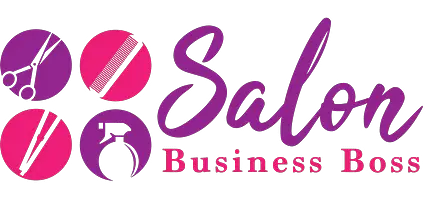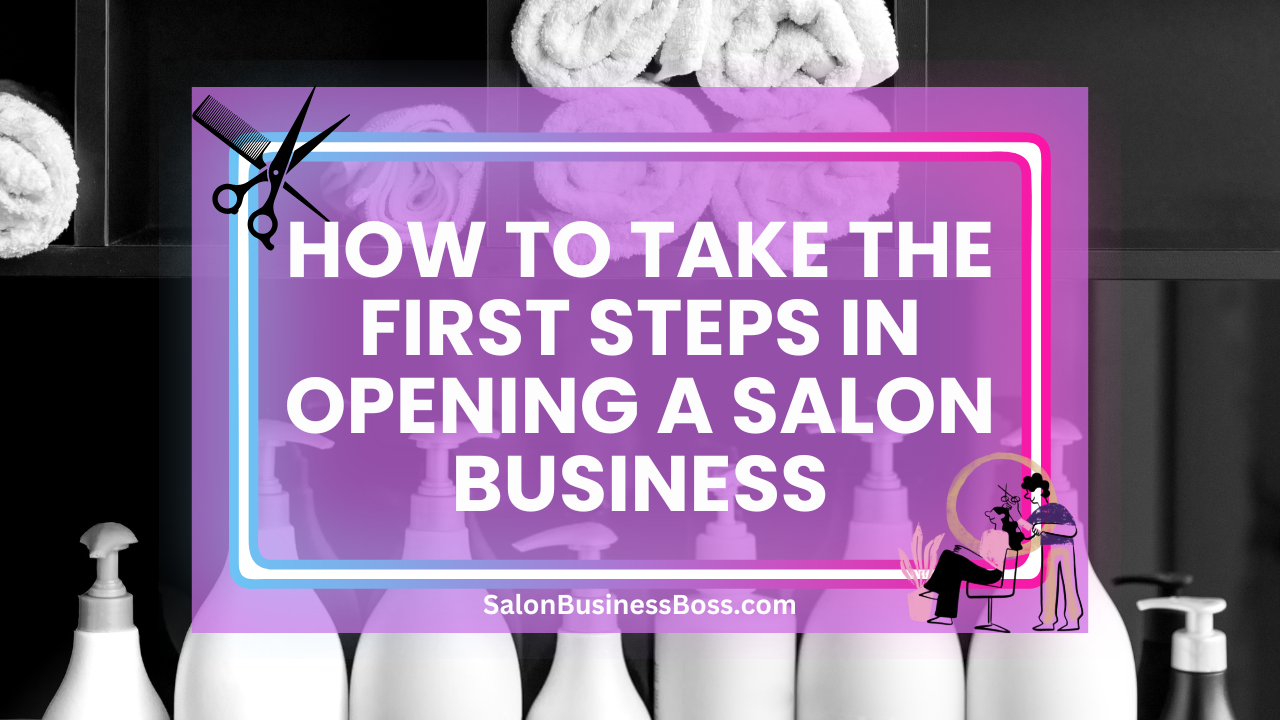Opening a salon business can be an exciting and rewarding venture for aspiring entrepreneurs in the beauty and wellness industry. However, like any business, it requires careful planning, dedication, and a solid foundation.
To open a salon business, conduct market research to understand your target audience and competitors. Create a solid business plan, find a suitable location, and obtain the necessary licenses. Invest in quality equipment, hire skilled professionals, and build a strong brand identity. Implement effective marketing strategies and focus on delivering exceptional customer experiences for success.
1. Market Research and Business Plan
Before venturing into the salon business, conducting comprehensive market research is a fundamental step to ensure success. By analyzing the market, you gain valuable insights into your target demographic, understand your competition, and identify the demand for specific services. Understanding your local community’s preferences and needs allows you to tailor your salon’s offerings to cater to their expectations.
A well-crafted business plan is equally vital in guiding your salon’s trajectory. This plan should encompass the salon’s mission and vision, detailing its core values and objectives. Clearly defining your unique selling points sets your salon apart from competitors and gives potential customers a reason to choose your services.
The financial projections section is critical, as it helps you assess the feasibility of your salon business and plan for its financial growth. Marketing strategies outline how you’ll promote your salon, attract clients, and create brand awareness. Additionally, the business plan must include operational details such as staffing, management, and daily processes. In essence, a comprehensive business plan serves as a roadmap to navigate the early stages of your salon venture, guiding you toward achieving your goals and establishing a strong foundation for long-term success.
2. Choose a Suitable Location
Selecting the right location is a pivotal decision that can significantly impact your salon’s prosperity. Look for areas with high foot traffic, such as shopping centers or busy streets, as they provide greater visibility and exposure to potential clients. Proximity to your target clientele is crucial, ensuring convenience and accessibility for your customers.
Parking facilities are essential, as ease of parking can influence whether customers choose your salon over competitors. Also, consider local regulations, zoning laws, and licensing requirements for the chosen location to avoid potential legal issues.
Leasing commercial space is a significant financial commitment, so it’s essential to assess your budget and negotiate lease terms that align with your long-term business objectives. Choosing the right location can attract a steady flow of customers and create a favorable impression, laying the foundation for a successful salon business.
Leasing a commercial space can be expensive, so weigh your options carefully and negotiate lease terms that align with your long-term business goals.
3. Acquire Necessary Licenses and Permits

Operating a salon business within the bounds of the law requires obtaining the appropriate licenses and permits. The specific requirements can vary based on your location and the services you offer, so it’s crucial to research and comply with local regulations.
A business license is typically a fundamental requirement for any business and ensures that your salon is legally recognized and registered with the authorities. Additionally, a cosmetology license is essential for the salon professionals, such as hairstylists and estheticians, to legally offer their services.
Health department permits are critical to maintain hygiene and safety standards in your salon. These permits ensure that your salon complies with sanitation practices, proper waste disposal, and other health-related guidelines to safeguard the well-being of both your customers and staff.
By acquiring the necessary licenses and permits, you protect your salon from potential legal issues, fines, or even closure due to non-compliance. It also instills confidence in your customers, assuring them that your salon operates ethically and meets industry standards.
Read more about: What Licenses Do You Need to Open a Salon: Ensuring a Legitimate Business
4. Gather Resources and Equipment
Equipping your salon with the right resources and equipment is essential to provide exceptional services and create a positive client experience. Create a comprehensive list of essential salon equipment, such as comfortable and stylish salon chairs, functional styling stations, modern shampoo units, and efficient hair dryers.
Investing in high-quality equipment not only enhances the client’s comfort but also contributes to the durability and longevity of your salon’s assets, reducing the need for frequent replacements and repairs.
Consider integrating technology into your salon operations. A salon management system can streamline appointment scheduling, inventory management, and customer record-keeping. This technology optimizes efficiency, minimizes errors, and allows your staff to focus more on delivering personalized customer service.
Stock up on a diverse range of beauty products from reputable suppliers to cater to various customer preferences and needs. Maintaining a well-stocked inventory ensures that your salon can offer a wide array of services and meet the demands of different clients.
By investing in the right resources and equipment, you create a salon environment that fosters both employee productivity and customer satisfaction, positioning your salon for long-term success in the competitive beauty industry.
5. Build a Skilled Team
The key to a thriving salon business lies in building a skilled and dedicated team of professionals. Hiring licensed and experienced hairstylists, estheticians, and other beauty experts is crucial to deliver top-notch services and maintain customer satisfaction. Conduct thorough interviews to assess candidates’ technical expertise, creativity, and interpersonal skills. Checking references helps ensure you hire individuals with a track record of professionalism and excellent customer service.
To attract top talent, offer competitive compensation packages that include benefits, performance-based incentives, and opportunities for growth within the salon. Creating a positive and supportive work environment fosters employee loyalty and encourages staff members to invest their best efforts in achieving the salon’s goals.
Encourage ongoing professional development by providing opportunities for training, attending industry events, and staying updated on the latest trends and techniques. Investing in your team’s growth enhances their skills, which, in turn, elevates the overall quality of services your salon offers.
6. Develop a Brand Identity
A strong brand identity is essential for differentiating your salon from competitors and leaving a lasting impression on your clients. Start by choosing a salon name that reflects your vision and resonates with your target audience. Your name should be catchy, memorable, and easy to associate with your salon’s values and personality.
Designing a unique logo is equally crucial as it visually represents your brand and communicates your salon’s aesthetics and style. Consider working with a professional designer to create a visually appealing and versatile logo that can be used across various marketing materials and platforms.
Develop a cohesive brand image that encompasses your salon’s color palette, typography, and visual elements. Consistency in branding across your physical salon space, website, social media, and marketing materials establishes brand recognition and instills confidence in your customers.
Your brand identity should align with your salon’s values, the quality of services you offer, and the overall customer experience you provide. An authentic and compelling brand identity attracts clients who resonate with your salon’s values, fostering a loyal customer base and setting the stage for long-term success.
7. Implement Effective Marketing Strategies

Effectively marketing your salon business is essential for attracting new clients and building a strong customer base. A well-rounded approach that combines online and offline strategies can maximize your salon’s visibility and reach.
Start by investing in a professional website that showcases your salon’s services, pricing, and contact information. Ensure that the website is user-friendly, mobile-responsive, and visually appealing. High-quality images of your salon’s work and a clear call-to-action prompt potential clients to reach out and book appointments.
Engaging actively on social media platforms is a powerful way to connect with your target audience. Regularly post high-quality photos and videos of your salon’s services, behind-the-scenes content, and beauty tips. Interact with followers, respond to comments and messages promptly, and build a community around your brand.
Collaborate with local businesses and influencers to tap into their audience and expand your salon’s reach. Joint promotions or hosting events can introduce your salon to new potential clients and create partnerships that benefit both parties.
Offering special promotions and incentives can entice both new and existing clients to visit your salon. Consider loyalty programs, referral discounts, or seasonal promotions to encourage repeat business and reward loyal customers.
Read more about: How to Open a Tanning Salon: Strategies for Growth
8. Focus on Customer Experience
Delivering an exceptional customer experience is paramount in building a loyal client base and generating positive word-of-mouth referrals. Train your staff to be attentive, friendly, and responsive to clients’ needs, making each visit to your salon enjoyable and memorable.
Offer personalized recommendations based on each client’s preferences and needs, showing that you value their individuality. Creating a warm and welcoming atmosphere helps clients feel comfortable and at ease during their salon experience.
Implement loyalty programs to reward returning clients and offer exclusive perks for repeat visits. Providing discounts, free add-on services, or special gifts on special occasions shows your appreciation and encourages clients to return.
Encourage clients to leave reviews and testimonials, and respond to feedback promptly, whether it’s positive or constructive criticism. Demonstrating a commitment to continuously improving your salon based on client feedback fosters trust and enhances your salon’s reputation.
By focusing on customer experience and building genuine relationships with clients, you’ll foster loyalty, gain positive reviews, and create a strong foundation for your salon’s long-term success.
Conclusion
Opening a salon business requires careful planning, attention to detail, and a customer-centric approach. By conducting thorough market research, creating a robust business plan, and assembling a skilled team, you can lay the groundwork for a successful salon venture. Remember that the journey doesn’t end with the grand opening; ongoing efforts in marketing, customer service, and staying updated with industry trends will ensure your salon business thrives in the competitive beauty and wellness market.
Frequently Asked Questions

1. How do I find skilled professionals for my salon?
Conduct thorough interviews, check references, and offer competitive compensation to attract licensed and experienced hairstylists, estheticians, and other beauty experts.
2. What role does branding play in a salon business?
Branding is crucial for marketing and creating a memorable experience. Develop a unique salon name, logo, and cohesive brand identity to attract clients.
3. How can I market my salon effectively?
Utilize a mix of online and offline marketing strategies. Invest in a professional website, engage on social media, collaborate with local businesses, and offer promotions.
To learn more on how to start you own salon checkout my startup documents here.
Please note that the contents of this blog are for informational and entertainment purposes only and should not be construed as legal advice. Any action taken based on the information provided in this blog is solely at your own risk. Additionally, all images used in this blog are generated under the CC0 license of Creative Commons, which means they are free to use for any purpose without attribution.

About the author. Entrepreneur and Salon Business Fan.
Hi! I am Shawn and I am a happy individual who happens to be an entrepreneur. I have owned several types of businesses in my life from a coffee shop to an import and export business to an online review business plus a few more and now I create online salon business resources for those interested in starting new ventures. It’s demanding work but I love it. I do it for those passionate about their business and their goals. That’s why when I meet a salon business owner, I see myself. I know how hard the struggle is to retain clients, find good employees and keep the business growing all while trying to stay competitive.
That’s why I created Salon Business Boss: I want to help salon business owners like you build a thriving business that brings you endless joy and supports your ideal lifestyle.

